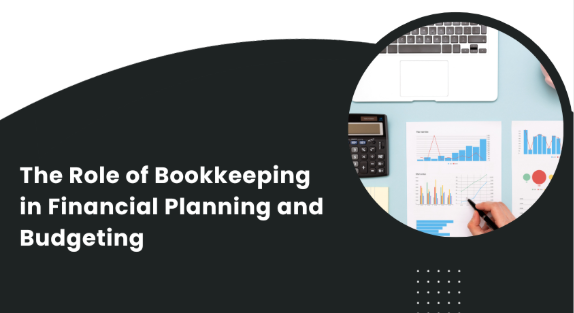Introduction: Why Accurate Accounting is the Backbone of Business Success
Accounting isn’t just about keeping track of numbers—it’s the heartbeat of any business. From managing daily expenses to evaluating quarterly profits, accurate accounting ensures you’re always on top of your finances. But despite its importance, many businesses—especially small to medium-sized enterprises—fall into the trap of making avoidable accounting mistakes.
Whether it’s mixing personal and business finances, misclassifying expenses, or not staying current with tax obligations, these errors can be costly. This is where professional guidance from Brisbane accountants becomes invaluable. With their deep knowledge of local tax laws and financial regulations, these professionals help businesses stay compliant, organised, and profitable.
In this comprehensive guide, we’ll explore the most common accounting mistakes businesses make and how to avoid them, with insights from experienced Brisbane accountants who’ve seen it all.
1. Understanding the Role of Accounting in Business
Accounting serves as the foundation of every financial decision a business makes. Whether you’re a startup founder or running an established company, having a clear grasp of your business’s financial health is vital. Accounting isn’t just about tracking income and expenses; it’s about providing insights into profitability, cash flow, budgeting, and strategic planning.
There are three primary types of accounting: financial accounting, management accounting, and tax accounting. Each plays a crucial role in keeping your business on track:
- Financial Accounting involves the preparation of financial statements such as balance sheets, income statements, and cash flow statements. These documents are essential for stakeholders like investors and banks.
- Management Accounting is used internally to aid business decision-making. It includes budgeting, forecasting, and various financial analyses.
- Tax Accounting focuses on compliance with government regulations, including GST obligations, payroll taxes, and end-of-year returns.
In Australia, accounting standards are governed by the Australian Accounting Standards Board (AASB), ensuring consistency and transparency. Working with Brisbane accountants ensures that your business adheres to these standards, thereby avoiding regulatory penalties and ensuring smooth financial operations.
2. Top 15 Common Accounting Mistakes
2.1 Mixing Personal and Business Expenses
Blurring the lines between personal and business finances is a common rookie mistake. Using a single bank account for both can create confusion during tax season and lead to inaccurate financial reporting.
2.2 Failing to Reconcile Bank Statements
Neglecting monthly bank reconciliations results in discrepancies that can spiral out of control. Regular reconciliations help catch errors or fraudulent activity early.
2.3 Misclassifying Transactions
Incorrect categorisation of expenses and income affects your financial reports and can mislead decision-making. For example, classifying capital expenditure as an operational cost skews your profitability.
2.4 Ignoring Petty Cash
Small cash expenses often go undocumented but add up over time. Without a proper system, you risk underreporting expenses and losing valuable tax deductions.
2.5 Not Backing Up Financial Data
With so many businesses going digital, not having a data backup plan is risky. Data loss due to system failure or cyber-attacks can be devastating.
2.6 Overlooking Accounts Receivable
Ignoring unpaid invoices hurts your cash flow. Timely follow-ups and a proper credit policy are essential.
2.7 Poor Invoice Management
Delays in invoicing clients or errors in invoices can lead to payment delays and strained relationships.
2.8 Forgetting Tax Deadlines
Missing ATO deadlines can lead to hefty penalties. Brisbane accountants can set up reminders and even handle submissions on your behalf.
2.9 Not Keeping Receipts
Receipts are crucial for verifying transactions. Without them, you might struggle during audits and lose out on deductions.
2.10 Misunderstanding GST Obligations
Australia’s GST system is complex. Incorrect reporting or failure to register can lead to penalties.
2.11 Relying on Outdated Software
Using outdated or manual accounting methods increases the risk of errors. Cloud-based systems recommended by Brisbane accountants streamline operations and ensure accuracy.
2.12 DIY Accounting Without Proper Training
Many small business owners try to manage their books without proper knowledge. This often leads to errors that take more time (and money) to fix.
2.13 Misreporting Payroll
Payroll errors can lead to compliance issues and unhappy employees. Automating payroll processes helps maintain accuracy.
2.14 Skipping Financial Reviews
Regular reviews ensure you’re on track with budgets and goals. Ignoring them leads to undetected problems.
2.15 Underestimating the Importance of a Professional Accountant
Not investing in a qualified accountant can result in missed opportunities, financial inaccuracies, and greater stress during tax season.
3. The Importance of Hiring Qualified Accountants
Hiring a qualified accountant isn’t just about crunching numbers. It’s about gaining a financial partner who can help your business grow and remain compliant. Accountants bring expert knowledge in areas such as tax legislation, auditing standards, financial reporting, and compliance requirements, which are essential in today’s complex regulatory landscape.
Brisbane accountants offer specialised local expertise. They understand Queensland’s business climate, industry-specific challenges, and state taxation laws. This knowledge allows them to tailor their services to meet your exact needs—whether it’s setting up a new business structure, handling GST, or preparing financial statements.
A good accountant also provides strategic advice. From identifying cash flow leaks to suggesting investment opportunities, they help you make informed business decisions. They also support budgeting and forecasting efforts, ensuring your business remains future-ready. Hiring a qualified accountant means you’re never flying blind when it comes to your finances.
Moreover, having a professional accountant can significantly reduce the risk of errors. They use advanced accounting software and have streamlined processes that ensure every transaction is recorded accurately and in real time. This accuracy is critical for making reliable business decisions and avoiding costly mistakes.
Finally, when the ATO comes knocking, a professional accountant becomes your frontline defender. They’ll ensure you meet all tax obligations, provide the necessary documentation, and represent your interests.
4. How Brisbane Accountants Help Prevent Mistakes
Brisbane accountants serve as proactive partners in your business’s financial journey. They don’t just fix mistakes—they help prevent them before they occur. Their first line of defense is regular financial audits. By reviewing your records systematically, they identify inconsistencies or risks that could lead to compliance issues or financial loss.
They also help establish internal controls—protocols that govern how financial transactions are handled. This includes segregation of duties, approval hierarchies, and data reconciliation practices that minimise the opportunity for error or fraud.
Many Brisbane accountants offer cloud accounting services that automate repetitive tasks such as invoicing, payroll, and bank reconciliations. Automation not only increases accuracy but also saves time, allowing business owners to focus on growth rather than bookkeeping.
Another important role they play is in education. Accountants often train staff on best practices, improving internal processes and reducing dependency on external help. This capacity-building approach enhances your team’s competence and reduces the likelihood of simple errors escalating into costly problems.
Through cash flow forecasting and budget planning, they also help prevent overspending and liquidity issues. With accurate forecasting, you can confidently make decisions about hiring, purchasing, or investing.
In short, Brisbane accountants act as a safety net—guiding you through the complexities of financial management and shielding your business from avoidable pitfalls.
5. Best Practices to Avoid Accounting Errors
Avoiding accounting mistakes starts with building good habits and adopting smart systems. By following a few best practices, businesses can reduce errors, improve compliance, and make informed financial decisions. Here are five essential steps every business should consider.
First, always separate business and personal accounts. Mixing the two not only complicates bookkeeping but also increases the risk of misreporting expenses and income. Keeping business finances independent ensures accurate records and simplifies tax preparation.
Second, use cloud accounting software to manage your books. Modern platforms like Xero, QuickBooks, or MYOB offer real-time access to financial data, automated invoicing, and bank feed integration. These tools not only reduce manual errors but also enhance visibility and streamline reporting.
Third, implement internal controls within your finance processes. This could include requiring dual approvals for large transactions, setting access permissions for sensitive financial data, or conducting periodic audits. Strong internal controls prevent fraud and help detect errors before they become bigger issues.
Next, it’s crucial to schedule regular reconciliations. Reconciling your bank statements, credit card transactions, and accounts receivable/payable on a weekly or monthly basis ensures everything aligns. This routine helps you catch discrepancies early, avoid bounced payments, and maintain accurate cash flow insights.
Lastly, train your staff on basic financial literacy. Even if you have a professional accountant, your team plays a key role in day-to-day transactions. Training employees to understand how invoices, receipts, and budgets work can prevent small mistakes that may otherwise snowball into major problems.
By adopting these best practices, businesses can minimize risk, stay compliant, and work more efficiently—especially when supported by experienced Brisbane accountants who can provide guidance and oversight every step of the way.
6. Choosing the Right Accounting Software
The right accounting software can transform how you manage your business finances. It improves accuracy, enhances reporting, and streamlines processes like invoicing, payroll, and GST reporting. However, choosing the wrong software—or failing to utilise it properly—can lead to inefficiencies and costly errors.
Start by identifying your business needs. Do you require inventory tracking? Multi-currency transactions? Integration with point-of-sale systems? Make a checklist of features before evaluating options.
Cloud-based software such as Xero, MYOB, and QuickBooks are popular among Brisbane accountants. These platforms offer real-time access to financial data, seamless integration with bank feeds, and automated transaction categorisation. They also provide dashboards and reporting tools to monitor financial health at a glance.
Ease of use is crucial. Complex systems can lead to user errors. Look for intuitive interfaces and strong customer support. Many platforms also offer mobile apps, enabling on-the-go financial management.
Security is another major consideration. Choose software with robust encryption, secure backups, and role-based access controls to protect sensitive financial information.
Finally, consult your accountant before making a decision. Brisbane accountants often recommend and support specific platforms, ensuring seamless collaboration and integration with your financial reporting systems.
With the right software, you can save time, reduce errors, and gain deeper insights into your business’s financial performance.
7. Benefits of Outsourcing to Brisbane Accountants
Outsourcing your accounting tasks to professional Brisbane accountants can be a game-changing decision for any business, regardless of size or industry. It offers multiple advantages that go far beyond just balancing books.
First, it’s a cost-effective way to access top-tier financial expertise. Hiring an in-house accounting team can be expensive when you factor in salaries, training, and benefits. With outsourcing, you get access to a team of qualified professionals at a fraction of the cost—without compromising on quality or accuracy.
Second, it gives you back valuable time. Instead of getting bogged down in spreadsheets, compliance rules, or tax forms, you and your team can focus on what you do best—growing your business. Delegating complex financial tasks to trusted accountants frees up mental space and energy for strategic decision-making.
Third, peace of mind is a major benefit. Brisbane accountants are well-versed in local tax laws and compliance requirements, so they help ensure that everything from BAS submissions to payroll taxes is accurate and timely. This minimizes the risk of fines and audits while helping you stay on the right side of the ATO.
Another key advantage is scalability. Whether your business is expanding, downsizing, or going through a seasonal surge, outsourcing allows you to scale accounting services up or down as needed—without the hassle of hiring or firing staff.
Lastly, outsourcing provides access to real-time advice and financial reporting. Modern Brisbane accounting firms use cloud-based tools to offer immediate insights, helping you make informed decisions quickly. With accurate, up-to-date numbers at your fingertips, you’ll be better equipped to steer your business toward sustainable growth.
In short, outsourcing to Brisbane accountants is a smart, flexible, and strategic move for businesses aiming to thrive in today’s competitive market.
8. Hiring the Right Accountant
Choosing the right accountant is one of the most important decisions a Brisbane business owner can make. Your accountant isn’t just someone who files tax returns—they’re a long-term financial partner who can help you grow your business, avoid costly mistakes, and stay compliant with regulations. But with so many options out there, how do you know who’s right for you?
Start by knowing what to look for in a good accountant. A qualified accountant should do more than crunch numbers. Look for someone who understands your industry, communicates clearly, and offers proactive advice. Whether it’s helping you plan for tax season or identifying ways to improve profitability, your accountant should be a strategic asset—not just a service provider.
Credentials and experience are equally important. Ensure the accountant is registered with CPA Australia, CA ANZ, or IPA, and has relevant experience working with businesses similar to yours. Someone who’s worked with startups, retail shops, or tradespeople in Brisbane will have a better grasp of your challenges and opportunities.
Before hiring, don’t hesitate to ask questions. For example:
- What industries do you specialize in?
- How do you stay updated with tax law changes?
- Do you offer cloud accounting solutions?
- What’s your approach to ongoing communication?
The answers can reveal whether their services and style are a good fit.
While asking questions, stay alert for red flags. These may include vague pricing structures, poor communication, or over-promising results—like guaranteeing you’ll get a large tax refund. Also, beware of accountants who seem too busy to provide personalized attention or rely heavily on manual systems in a digital age.
So, where can you find trusted Brisbane accountants? Start with referrals from fellow business owners or your local business network. Online directories like the CPA Australia “Find a CPA” tool, LinkedIn, and Google Reviews can also provide useful insights. Look for firms that are transparent about their services and have a reputation for reliability.
Hiring the right accountant isn’t just about ticking boxes—it’s about finding someone you trust with the financial health of your business. A skilled Brisbane accountant can bring clarity to your numbers, confidence to your decisions, and peace of mind to your operations. Choose wisely, and you’ll gain a financial ally who’s invested in your long-term success.
Conclusion
Accounting mistakes are often preventable with the right systems, tools, and professional guidance in place. By understanding common pitfalls and actively working to avoid them, businesses can maintain financial clarity, ensure compliance, and drive growth. Leveraging the expertise of qualified Brisbane accountants offers added security and peace of mind, empowering you to focus on what you do best—growing your business. So, take a proactive approach, review your financial processes, and don’t hesitate to seek expert support when needed.







